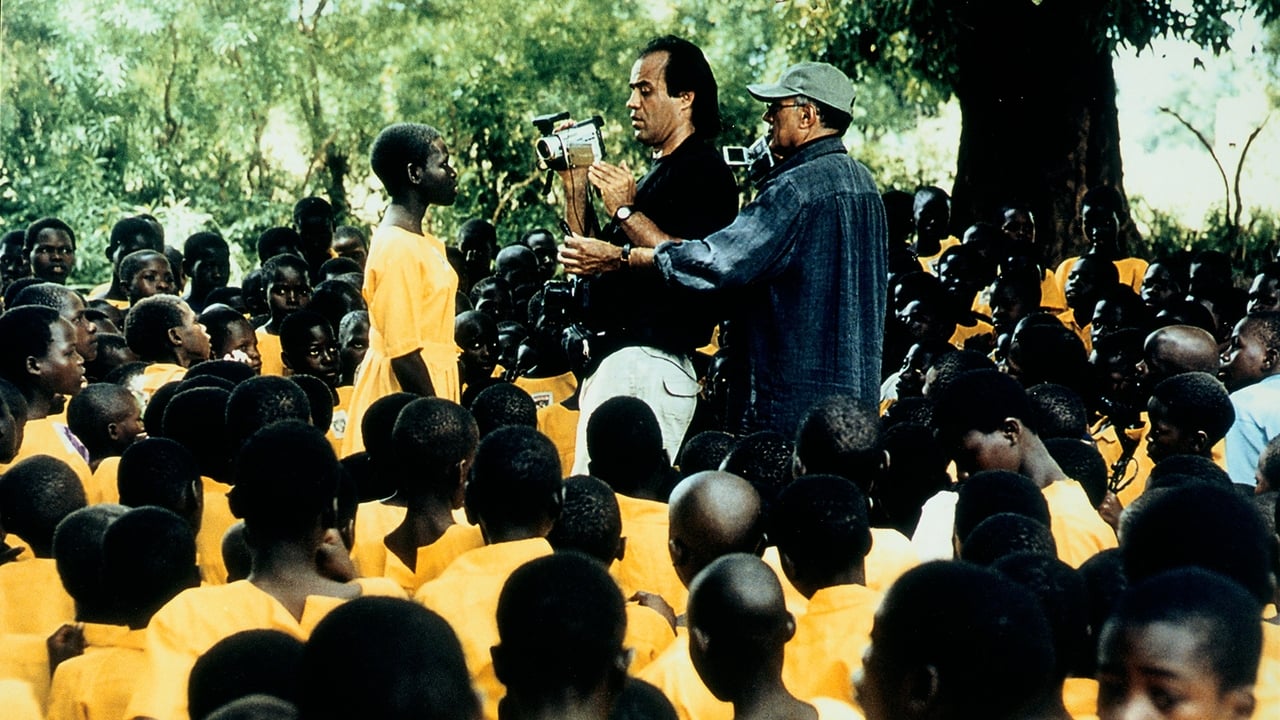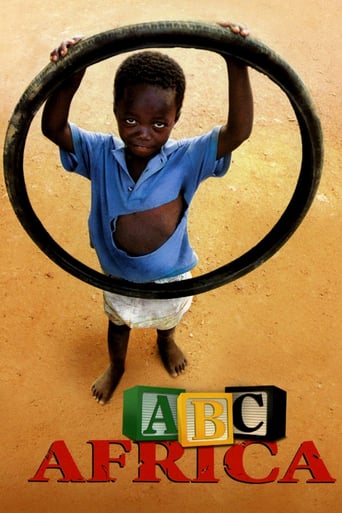Diagonaldi
Very well executed
RyothChatty
ridiculous rating
Fairaher
The film makes a home in your brain and the only cure is to see it again.
Allissa
.Like the great film, it's made with a great deal of visible affection both in front of and behind the camera.
mike-3406
This is a documentary shot at the request of a group of Ugandan women to publicise their mission to educate the AIDS and war orphans that would otherwise become a lost generation. The crew went to Uganda to shoot pilot footage using the smallest JVC mini-dv cameras intending to return with film cameras later, but the footage they took and the film that emerged from it is so unique that they felt the moment could never be recaptured. All Kiarostami's usual concerns with film form are put to the service of an enquiry into the relationship between film maker and subject without ducking uncomfortable questions about power and meeting of cultures. Released the same year as Black Hawk Down this film not only shows a side of Africa completely erased by Hollywood, it is a blueprint for a completely new approach to documentary. The comment that the best thing about the film is the format massively misses the importance and uniqueness of this film.
rasecz
Kiarostami is invited by the International Fund for Agricultural Development (IFAD) to see the work of Uganda Women's Effort to Save Orphans (UWESO). Carrying a couple of camcorders, the director sets to document what he sees. The film material covers the period from April 2000 to March 2001.The ravages of civil war, AIDS and also malaria have resulted in a plenitude of orphans in Uganda. It is for them that UWESO exists.Kiarostami makes at least one extended visit to Masaka, the epicenter of the AIDS epidemic in Uganda. This is the kind of place where electricity is cut out at midnight. One of the longest take in the film is shot in a pitch black night after the lights go out.Efforts to control the spread of AIDS is hampered by religion. Use of condoms is discouraged by the religious. Virginity is advocated as the correct alternative. Fat chance. Not surprisingly, 15 to 45 years men die from AIDS. The result is that towns are devoid of adult males.Kiarostami never misses an opportunity to film kids. It is an old interest of his. Moreover UWESO is there for them.Kiarostami meets an Austrian couple, a doctor and a teacher, who adopt a little girl. Elsewhere a little boy catches Kiarostami's attention. The camera approaches and zooms in. This little boy has eerily brilliant sky blue eyes.
jmcarlss
This movie has very good goals and intentions, but isn't edited enough to get the full point. I found myself getting lost in the singing, and children dancing in front of the camera, and often forgetting what the point was. A good half of the film was just that.. children reacting to the presence of a video camera and having non African men around. Also, there was just too much footage of children's faces. We seem often too fascinated by poor little African's faces and forget the real surrounding issues. Other than that, the film had some good points and good scenes. Beautiful footage of the countryside, although also too much.
zetes
Heartbreaking and beautiful documentary from Abbas Kiarostami, who once again proves that he's one of the best working directors. It's an account of AIDS-stricken Uganda and the group of women who are helping out by taking care of the over 1.5 million orphans. The documentary, shot on two digital, handheld cameras, shifts between a fact-finding mission and a more sublime bit of semi-ethnographic documentation. Kids love the camera, and they swarm around Kiarostami and his other camera operator, Seyfolah Samadian. They dance and sing and jump in front of the camera. The two men have an excellent eye for images, and they catch many that are powerful and beautiful. The music is always beautiful. As much as I loved this film, I had to groan at its final moments, which prove that Kiarostami is as much a manipulator as any of the directors who regularly get criticized for that.

